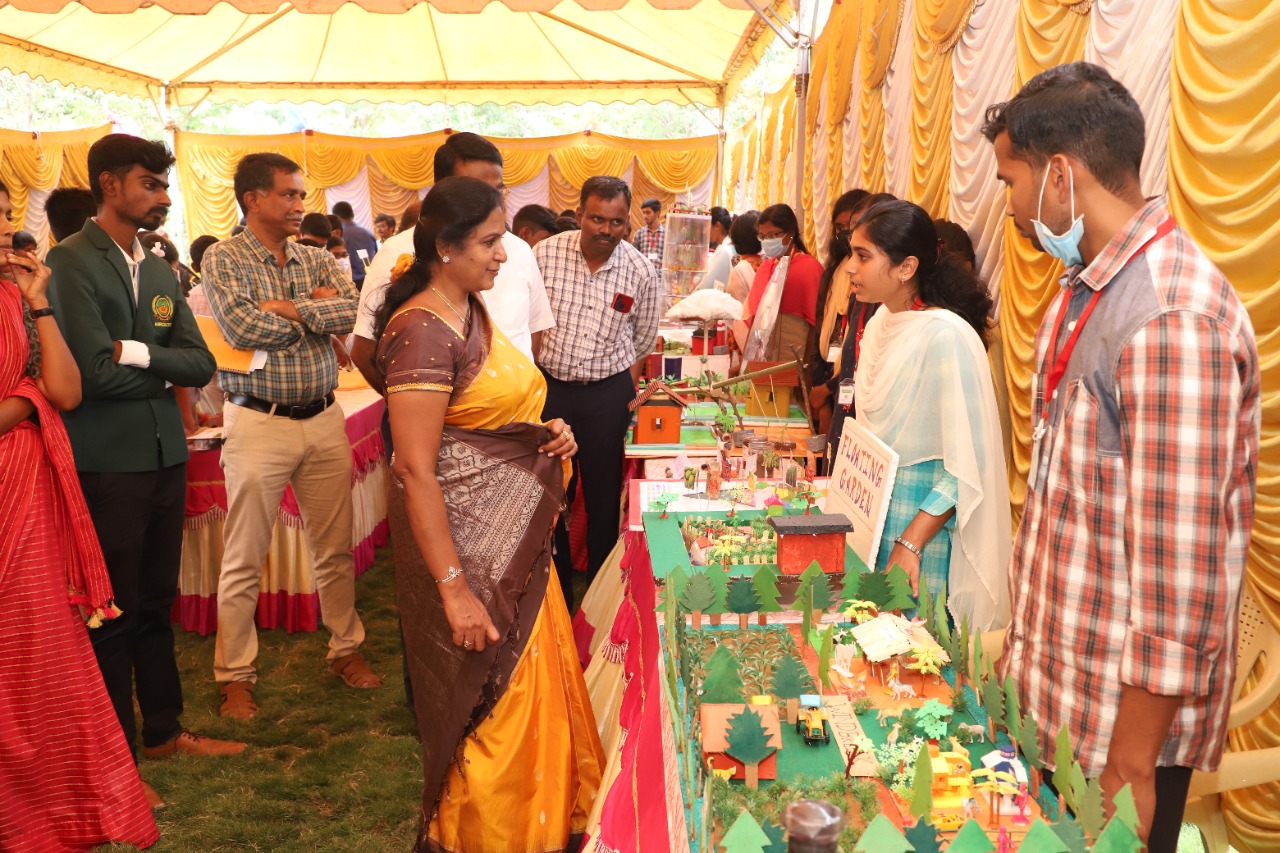The Tamil Nadu Agricultural University (TNAU) had its genesis from establishment of an Agricultural School at Saidapet, Madras, Tamil Nadu, as early as 1868 and it was later relocated at Coimbatore.
Get in touch
- info@tnau.ac.in
- 0422 6611200
- Monday to Friday: 9am to 5pm
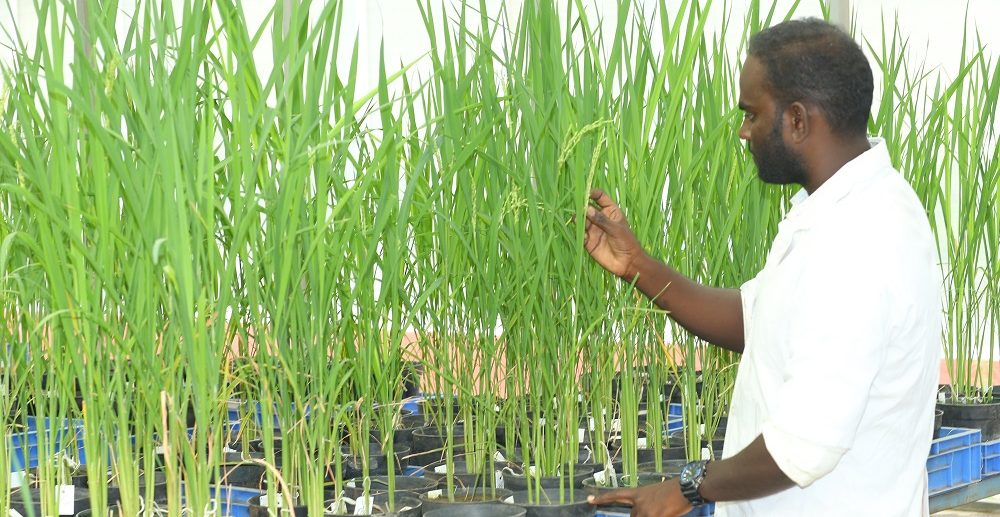
M.Sc. (Ag.) in Molecular Biology and Biotechnology
Prelude
Genetic improvement of plants is essential to feed the ever-growing population coupled with the declining land resources. Breeding for improved character in plant crops is limited by the plant diversity in crops. Modern molecular biology methods combine the techniques from plant breeding, plant physiology, plant biochemistry and other allied fields to impart specialized characters to plants – called Plant Biotechnology
Key features
- Thorough understanding of plant genomics and biochemistry leading to the physiology of plant functioning.
- Learning the complimentary fields of Plant tissue culture and plant breeding.
- Complying to ethical and regulatory aspects and intellectual property rights.
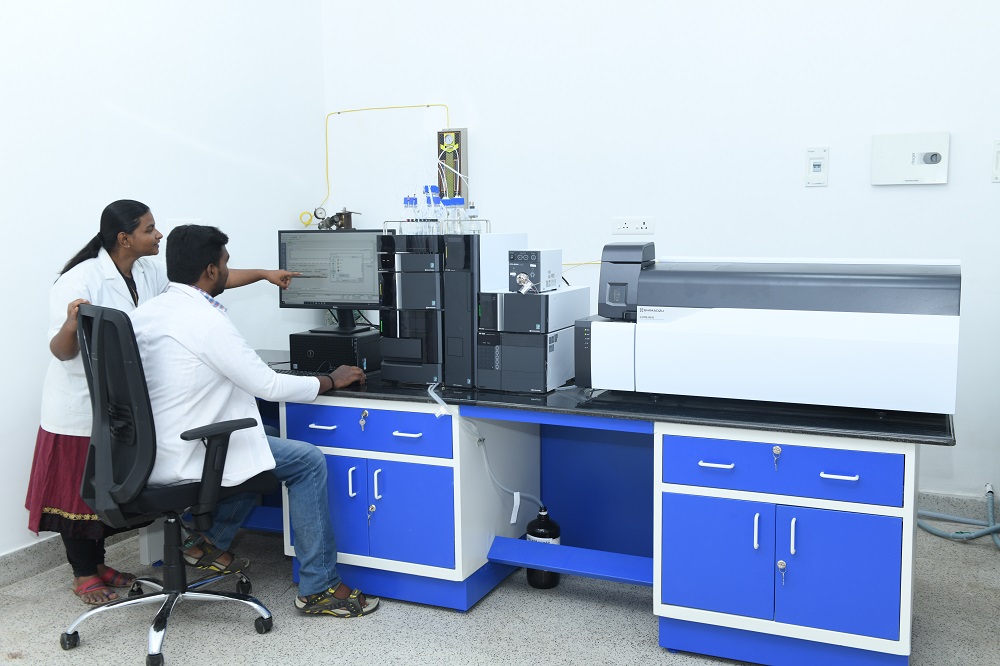
Course content
The Masters programme in Plant Biotechnology has been designed following the UGC guidelines. The course imparts:
- Biotechnology students an enabling environment for better learning
- Develop globally competitive human capacity in Biotechnology
- Promote research on frontier areas of biotechnology for developing high performance and nutrient rich crop varieties
- Foster international alliances and collaborative initiatives to reach global excellence.
- Promoting entrepreneurial skills of biotechnology students.
More details on the list of courses and research work experience to be gained is listed here.
Future Career prospects
M.Sc. (Agriculture) in Biotechnology students are admitted through JNU Common Entrance Examination in Biotechnology (CEEB) which was replaced by the Graduate Aptitude Test – Biotechnology (GAT-B) from the year 2020. Generally, JNU-CEEB/ GAT-B toppers prefer CPMB&B, TNAU as one of their primary priority institutes during the selection process. Apart from JNU students, ten students are admitted through TNAU entrance examinations. Apart from this, students are also admitted through NTA-AIAEE-PG entrance exam under the ICAR quota.
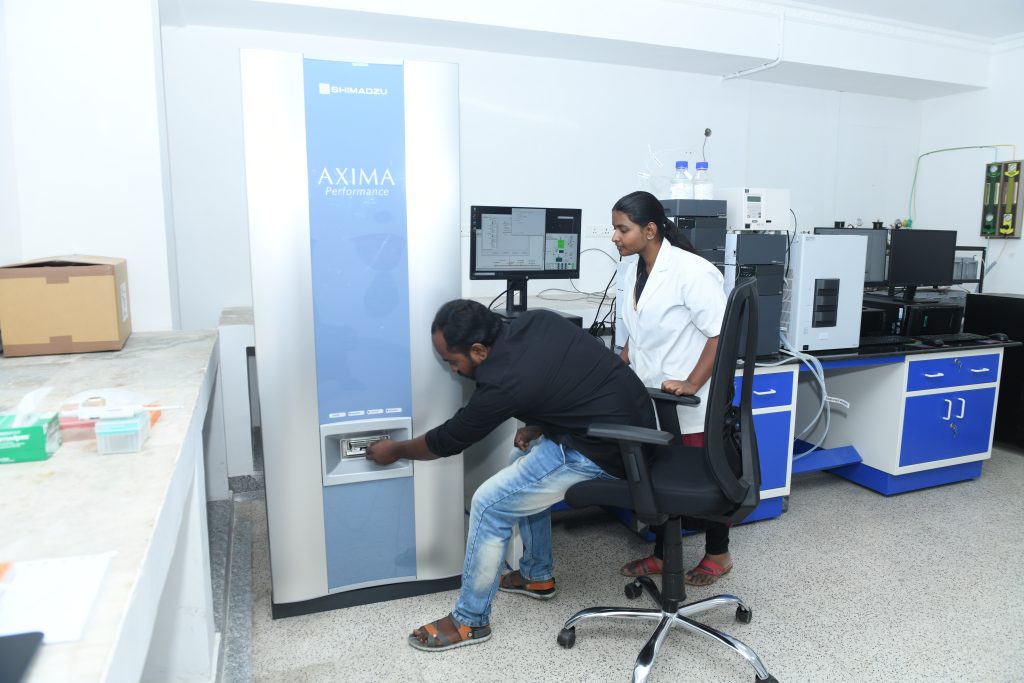
Masters in Biotechnology course
Graduate courses
After admission the students undergo a set of courses that help them understand the basics of Molecular Biology as per the Choice Based Credit System (CBCS) with a total credit load of 55 credits, of which 20 credits are exclusively earmarked for their Thesis Research.
Thesis Research
After completing the courses in the first year, the students start their thesis research. Each student is assigned to an experienced faculty, approved by the Dean of School of Post-Graduate Studies, who would guide the student on his/ her choice of research topic
Research participation
The students are exposed to several scientific events like symposia and conferences. Many are encouraged to have internship training at other institutes for a couple of months, either in India or abroad.
Alumni Experience

I completed my B.Tech (Biotechnology) from TNAU and I opted to pursue my M.Sc. (Ag) Biotechnology with JNU fellowship again at TNAU because of its excellent research facilities and supporting faculty members. The M.Sc. program curriculum is in such a way that one can easily understand the subject and can have hands-on training on basic techniques in his first year and carrying out research work in the second year. Master’s thesis research work on ‘Development and characterization of insect-resistant transgenic rice plants’ helped me get expertise in various techniques like plant genetic transformation, ELISA, Southern hybridization and insect bioassay studies. CPMB has excellent facilities to carry out all these techniques.
The courses offered helped me to attain wider knowledge on the subject and on other allied areas like plant physiology, biochemistry and plant breeding. Faculties at CPMB are the strong motivation for successful completion of my UG and PG studies as well as to clear competitive examination like DBT BET 2017 under category II conducted by Department of Biotechnology. They always motivate us with their excellent teachings and ignite us to pursue higher studies. They frequently organize guest lectures by scientists from various institutions/universities in India and abroad. In addition, lectures given by several alumni members of CPMB from leading research institutions worldwide motivated me to pursue my PhD abroad. They also keep us motivated with scholarships and fellowship alerts to pursue higher studies. The combination of all the above including my personal efforts helped me to pursue my doctorate research in my favorite research area, in one of the leading plant science research institutes in the world, Leibniz Institute of Plant Genetics and Crop Plant Research (IPK), Germany.
Courses on Computational biology and Developmental Genetics (animal/plants) can be included which will be useful for competitive exams like DBT, CSIR, GATE, etc. Overall, I am very much satisfied with the courses and research at CPMB. I would recommend anyone for doing their Master’s program in CPMB, TNAU.
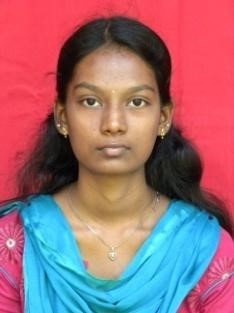
I am a B.Tech (Biotech) graduate from TNAU, its obvious I have been through world class infrastructure (with respect to the department) and facilities. I also completed my masters programme from the same University at CPMB&B. The course work is well designed and it covers most of the subject areas under life sciences. The classes are handled by well experienced faculties and the practical classes are extremely good which is not the case for many of the undergraduates outside. Student presentations for course work, molded us to be better in our presentation skills and seeded with greater confidence to face audience. Internship, experiential learning and individual project work are unique and to be appreciated. To say in a nutshell, CPMB&B is doing its best to maintain the standards and offer world class training to the undergraduates. The credit hours during final semester (which covers very important courses right now) can be reduced which will help and highly useful for the students to prepare for their competitive examinations and plan for their future.
The question paper and evaluation standards for qualifying exam were extremely good. The one-year thesis work is a very good platform to gain independent work experience and knowledge. Publications can be encouraged (which is being taken care already). Encouraging students to do their dissertation work outside (which is widely practiced outside) can be highly encouraged for the students’ welfare. I would like to express my gratitude to all the faculty, whose efforts in making my life better was very significant. Now I am trying for pursuing my higher studies with fellowship in renowned foreign institutes.
Alumni Experience
Alumni of the Centre for Plant Molecular Biology & Biotechnology at TNAU are the ambassadors for the Biotechnology programme. The alumni from this center are working as scientists in many leading national (ICAR institutes, JNU, IISc., IIAR, DRDO etc.), international laboratories (Harvard University, University of Missouri, Salk Institute of Biological Science, Nobel Foundation, Dupont Pioneer, USA, University of Calgary, Canada, CIAT, Colombia etc.), good administrative positions and private industries (Arcadia Biosciences, Dupont Pioneer, BASF, Genentech, USA, Chromous Biotech, Rasi Seeds, Advanta, Ankur seeds Biocon,etc.,) and Government agencies (DBT, FCI,Income tax, Ministry of Forest and Environment). About 40% of the students are pursuing doctoral studies and post-doctoral research in USA, UK, Japan, Canada, China, Germany, South Korea, Taiwan, Spain, Sweden, Denmark and Philippines.

Pravin Bhanudas Khambalkar
Division of Plant Science,
Research School of Biology,
Australian National University, Canberra
Netaji Subhas ICAR International Fellowship and Australian National University Higher Degree Research Fee Remission Merit Scholarship (2016-17)
TNAU has helped me a lot to reach this position. First of all, it has given the good platform to go abroad as it has the good reputation all around the world. Moreover, the things that I have learnt there during practicals and research made me more confident about my research. Faculty have been very much supportive in giving recommendation and other guidance. All the seniors from TNAU, who were doing there PhD in abroad were helpful for sharing their experiences and guidance. I am thankful to TNAU for giving me all support.

Nilesh Gawande
PhD in Biology, Concordia University,
Montreal, Canada
Netaji Subhas-ICAR International fellowship (2014-2015)
We have good environment in TNAU for going to study abroad. I had been motivated from the seminar and visiting Professors coming from different prestigious institutes and Universities abroad. I was constantly motivated by my chairman Dr. Murugan sir and Dr. Mohanmkumar sir to study in abroad. I was working in Dr. Mohankumar sir’s lab. Some seniors in TNAU also helped me to tell the fellowships, where I can apply. Even today also, I remember practical classes of Immunology and other courses. TNAU is the place, where I get exposure to all these Global research platforms and fellowships; it would not have been possible without studying in TNAU. I would like to express my sincerest gratitude to the TNAU and my all Professors.

